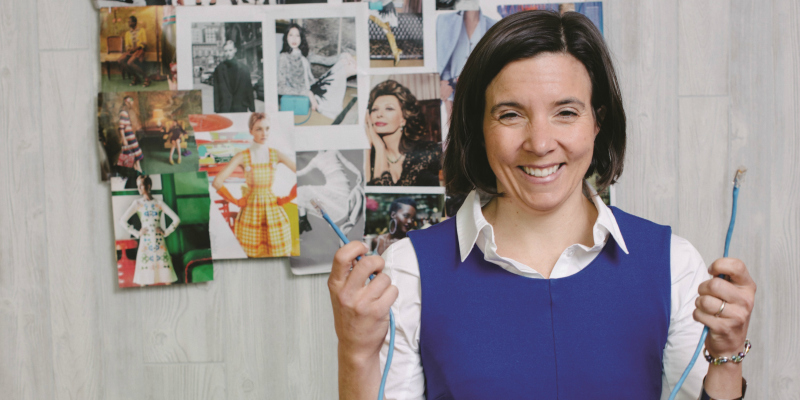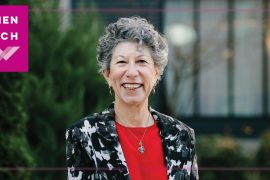Photographed by Hillary Schave
Think about how much of our lives are lived online. We pay bills, read the news, map routes, Skype with family, store photos. Our kids play games, do homework and communicate with teachers. And who doesn’t love to laugh at cat videos?
Alyssa Kenney, executive director of DANEnet, reminds us that 14,000 homes in Dane County don’t have access to the Internet as of 2017. Many don’t have computers. She vows to get 1,000 computers out into the community and connect 1,000 households to the Internet by the end of 2018.
“We do so much online,” Kenney says. “It’s nearly impossible to fully participate in society without access. Digital equity is so important.”
Through DANEnet, a nonprofit dedicated to bringing technology within reach, Kenney strives to “make the greater Madison area the most connected place in the country and to ensure that people without access to digital society get access, education and support.”
Under Kenney’s leadership, DANEnet’s budget has grown 20 percent in two years. It provides IT services for 160 nonprofits and technology education through maker clubs and Kids Code Madison. But her banner project is Everyone On Madison— a partnership with the City of Madison to help people buy and repair computers, learn about technology and get connected. Participants can take a digital literacy class then purchase a desktop computer for $50.
The program has already helped 560 households get online, 286 households acquire desktop computers and fixed more than 100 devices for low-income households. Some 250 adults have learned essential computing skills.
The good news is that broadband is widely available in the city of Madison, and there are programs that make it affordable, such as those through AT&T Access, Spectrum and the City of Madison’s Connecting Madison. Infrastructure is still a challenge in more rural parts of Dane County.
“Technology is an amplifier of intentions. It can help accelerate the good in our community,” says Kenney, named as one of the 40 Under 40 In Business Magazine leaders in 2015. Having previously worked at various Madison community centers, helping build their technology centers, she sees digital inclusion as a social justice issue. “Technology makes my life easier and richer, and I want everyone to have that opportunity.”
–Lisa Bauer




